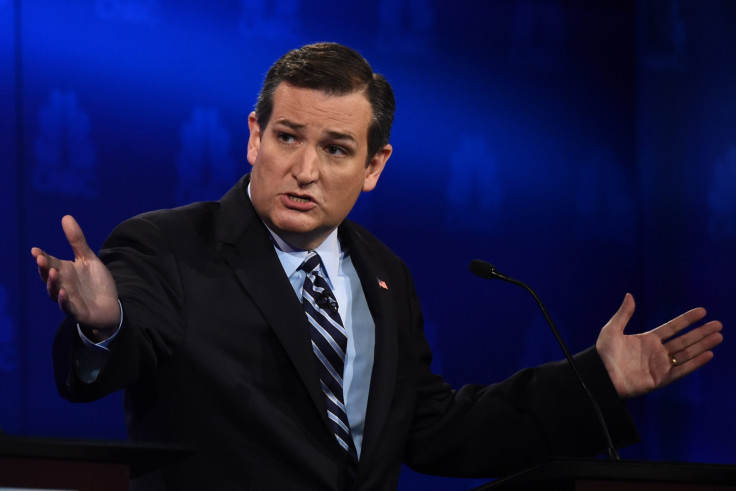CNBC Republican Debate Unfair? Ted Cruz Goes After The Media, Calls Questions Lacking In Substance

Republican presidential candidate Sen. Ted Cruz, R-Texas, took the time allotted for his first question in the third GOP debate Wednesday to chastise the American media, calling it biased and saying that it favors Democrats over Republicans. In doing so, Cruz defended his fellow Republicans on the stage, saying they were asked unfair questions like whether real estate mogul Donald Trump's campaign is a "comic book campaign" and whether or not retired neurosurgeon Ben Carson can "do math."
"Nobody watching at home believes that any of the moderators has any intention of voting in a Republican primary," Cruz said. "The questions being asked shouldn't be trying to get people to tear into each other. It should be what are the substantive answers [to America's problems?]"
Cruz has largely been missing from national political media headlines compared to the likes of Trump and Carson, but he finds himself in a relatively comfortable fifth place in the GOP field. He receives 6.6 percent of national support, according to an average of national polls by Real Clear Politics. That’s a slight drop from a week ago, when he saw his highest ratings in months: 8.3 percent.
Coming in fifth place doesn’t sound like a resounding level of support from the party; however, the evangelical conservative has plenty of wiggle room because of his impressive fundraising ability. At the third campaign fundraising quarter of this year, he had raised a total of $26.5 million for his presidential run. During that quarter, Cruz managed to snag $5.2 million from wealthy donors who maxed out at the Federal Election Commission donation limit of $2,700 per election. Only one other Republican beat him with wealthy donors -- former Florida Gov. Jeb Bush.
Cruz has taken a harsh position on immigrants, mirroring similar sentiments to those expressed by Trump, who made a big splash by calling Mexicans criminals and rapists while announcing his candidacy earlier this year. He’s also supported legislation, alongside his colleague and fellow Republican presidential candidate Marco Rubio, R-Fla., to hold federal funding for so-called "sanctuary cities" which have policies against complying with federal immigration enforcement requests.
© Copyright IBTimes 2024. All rights reserved.





















